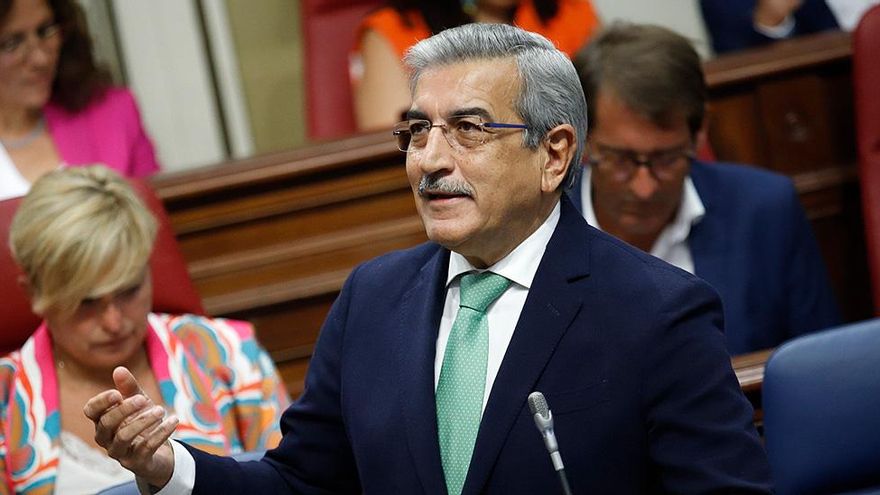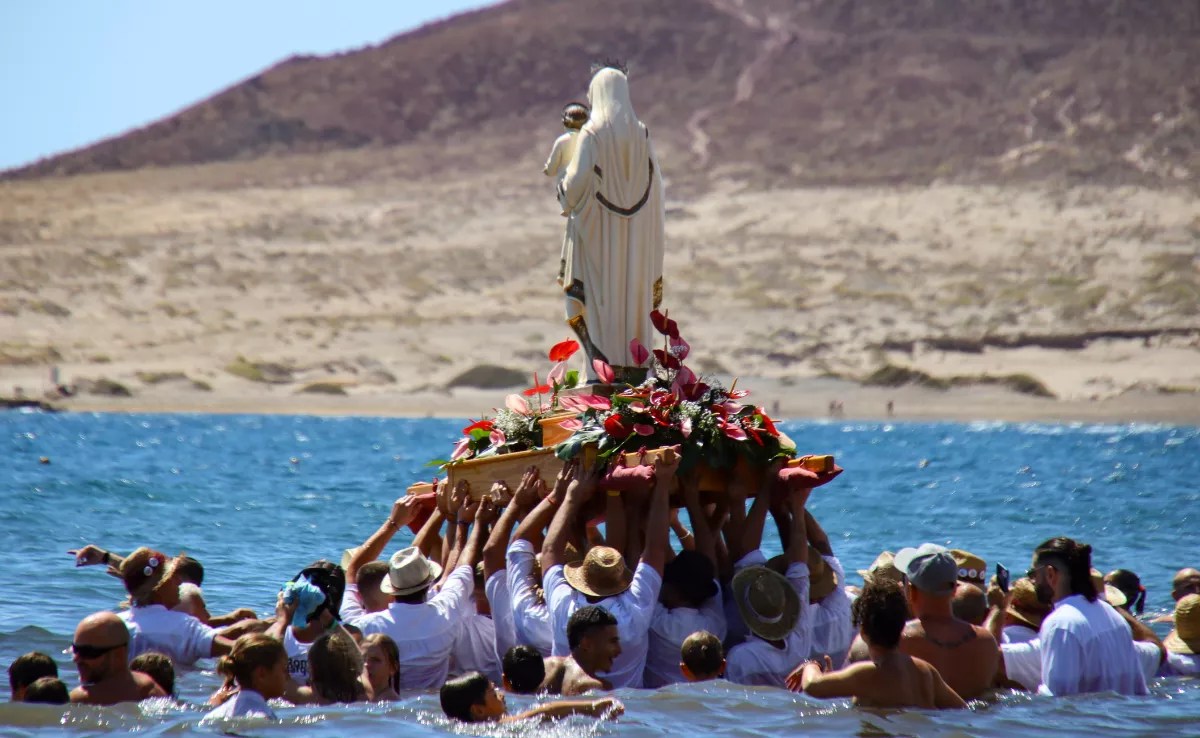
The public investment of the Autonomous Community it increases in all the islands in 2023, although in relative terms the increase is greater in non-capital islands. One of the main novelties in the territorialized expenditure foreseen in next year’s budgets is the insularization for the first time of the investment in the graceful, with 3.1 million euros contemplated in various actions on the eighth island, which is already considered as such since the 2018 Statute reform but which until now lacked its own funds detached from Lanzarote. The combined expenditure of chapters VI -real investments- and VII -capital transfers- by islands is 993.6 million euros, nearly 200 million more than this year. Together with the non-insularized items and the funds destined abroad, the expenditure reaches 1,764 million euros.
The average increase in regional investment is 20%, but they are The Palm and the eastern islands which achieved a greater increase in relation to the current budget. The beautiful island receives 30 million euros more for the actions carried out in order to mitigate the damage caused by the volcanic eruption, including homes and roads. Lanzarote, with 27 million more, and Fuerteventura, with 22.9 million more, also rise in the relative weight of territorialized investments. In relation to the capital islands, the one that regresses the most is Gran Canaria, with a 20% increase compared to Tenerife, with about 23% and 50 million more compared to the 41.4 of the round island.
This increase in public funds means a rise in spending per inhabitant to 638 euros on average for the whole of the Archipelago. However, the number of inhabitants determines the important differences in investment per capita, since the westernmost islands have more than 2,500 euros per inhabitant for less than 250 euros in the two most inhabited islands. According to official government figures, between 2019 and 2023, investment per inhabitant has gone from 507 to 638 euros, 25.8% more.
The public spending figures were offered yesterday by the team of the Treasury Department of the regional Executive, whose main person in charge, Roman Rodriguez, delivered the budget bill to Parliament to start processing it. The Vice President, who was accompanied by the Deputy Minister of Finance, Planning and European Affairs, Fermín Delgado, and the General Director of Planning and Budget, Luis Márquez, highlighted the “significant” increases in the three major budget policies: social spending, investment and support for the productive sectors.
The budget bill for 2023 maintains the trend of previous years, especially since the crisis caused by the Covid pandemic began and is now suffering the onslaught of high inflation and the turbulence caused by the war in Ukraine. For this reason, the head of the Treasury highlighted that with a total expenditure of 10,180 million euros (11.9% more than current figures), next year’s accounts “consecrate the anti-cyclical policy carried out by the Government in recent years and that has made it possible to protect people and the economy in a scenario marked by different crises.” The deployment of public resources exceeds 3,000 million euros compared to four years ago, which represents an increase of 29.6% compared to to the appropriations of the 2019 accounts, the last of the previous Government, with the commitment to public services and the stimulation of economic activity as priorities.
This increase in public spending occurs, as happened when the 2022 budgets were drawn up, thanks to the suspension of fiscal rules by the European Union, due to the increase in tax collection of the Autonomous Community and, above all, by the significant increase in funding from the State and the EU. Román Rodríguez remarked that this injection of funds from other administrations has been decisive for the Canary Islands to have been able to increase public spending in recent years “without raising taxes and lowering the debt”. In fact, the Minister of the Treasury highlighted the “selective and surgical” fiscal adjustments that have been carried out in this legislature aimed at the most vulnerable sectors and those affected by the volcanic eruption of La Palma.














